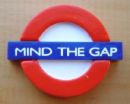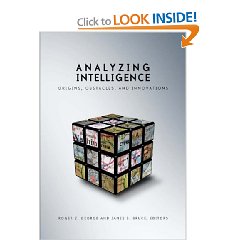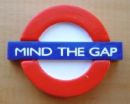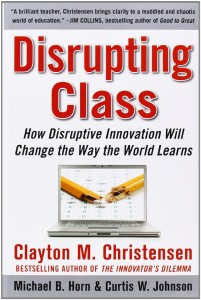
Excellent Training Material, See Also the Workbook,
Patrick Lencioni et al
To obtain this book I actually had to go to Border's Bookstore, and while there I had a chance to go through both The Five Dysfunctions of a Team: Participant Workbook (J-B Lencioni Series), which is outrageously priced at Amazon, half the price at Borders, and also Toxic Workplace!: Managing Toxic Personalities and Their Systems of Power.
On balance, I prefer the workbook to the text. It was much easier to read, it provided for the development of dialog among participating team members, and in general struck me as more likely to produce the desired outcome.
Having said that in no way demeans the value of this primary text discussing the five dysfunctions:
01 Absence of Trust
02 Fear of Conflict
03 Lack of Commitment
04 Avoidance of Accountability
05 Inattention to Results.
I read this book a bit more critically than Crucial Conversations, in part because I have a continuing concern about the context within which we hire and manage people in the US Intelligence Community and the US Government at large–the hypocrisy, duplicity, and lack of strategic coherence at the top (see my article, “Fixing the White House and National Intelligence”).
I do not wish to lead–or mislead–individuals who work 60 hour weeks and more, only to be told that the Quadrennial Defense Review has already been sketched out by the Undersecretary for Policy, it will focus on China (space), China (maritime), and China (infowar), and no all-source intelligence is needed, thank you very much.
This books emphasis on individual accountability is one of its strengths, and long overdue in both government and the private sector Not only do we have too many employees going through the motions, but with all the money that has been invented since 9-11 and the financial crash of 2008, we now have TWO contractors for every government employee, and “the Borg” just keeps on growing.
Of the two books, this is harder to read and also the more rewarding if you believe that by leading your patch properly, this kind of open, effective leadership will spread upwards. I am not so sure.
There are several other reviews (be sure to read the reviews for the workbook as well) that go into detail, for me, even with the remediation provided by over a decade in the appreciative inquiry, deliberative dialog circles (see my recommended books below), the elements this book defines that I lacked in my days of seeking to slay dragons include:
01 Who you are is impacted by where you sit. Don't make it personal. Good people do bad things for reasons that have nothing to do with you personally, or their inherent nature.
02 Fear of conflict is natural, especially when rankism prevails, and it will be very hard, but by taking the first step in offering civil “full and open” dialog, you can change the game for everyone to the better. The opposite of this–my own mortal sin–is to seek and create conflict as a means of flushing the issue, which I now realize is counter-productive.
03 The book talks the talk about “cascading communications” but it lacks the information technology savvy to make this practical. It has been shown that Wikis reduce meeting times by half and email by two thirds (roughly). I see this as three things that must be managed in harmony: the top bosses must actually value openness and diversity as a foundation for effectiveness; the IT infrastructure must be geared to this (IntelWiki is far removed from the totality, and employees still spend a quarter of their time logging in and out of disparate systems, most of which are not geospatially-rooted for ease of access).
04 Accountability makes me crazy. We lack strategic coherence (what is our mission?) operational connectivity (who is doing what across the Whole of Government), and tactical effectiveness (do we really need to carpet bomb civilians instead of one man – one bullet precision?) I admire the various strategic plans that exist, but the higher you go the more surreal they get. Accountability for me means that the QDR will be intelligence-driven; that OMB and GAO will be full-partners; and that we will recognize that our own misbehavior is costing us vastly more than anyone attacking us could hope to achieve with kinetic weapons; and that we lack global situational awareness because we have over-invested in technical collection while neglecting human intelligence and processing. Yes, we need to hold individuals accountable, but I shy away from crucifying individual Marines for a handful of civilian casualties “mano a mano” when the Air Force takes out entire city blocks without a second of remorse.
I guess the highest compliment I can pay this book is that it set me off. It is a righteous book, and it is a superb book for getting rising leaders to think about leadership fundamentals: integrity, clarity, education, empowerment. The context in which our rising leaders do that is troubling, and so I put this book down with a sense of despair. Good people, all, trapped in a bad system. Who teaches “the system?” Can a “system” learn? These are my questions.
Other books I recommend (I do have high hopes for the common sense of the average citizen):
The leadership of civilization building: Administrative and civilization theory, symbolic dialogue, and citizen skills for the 21st century
How to Change the World: Social Entrepreneurs and the Power of New Ideas, Updated Edition
The Power of Unreasonable People: How Social Entrepreneurs Create Markets That Change the World
The Cultural Creatives: How 50 Million People Are Changing the World
Democracy's Edge: Choosing to Save Our Country by Bringing Democracy to Life
Integral Consciousness and the Future of Evolution
Conscious Evolution: Awakening Our Social Potential
Click Here to Vote on Review at Amazon,
on Cover Above to Buy or Read Other Reviews,
I Respond to Comments Here or There









